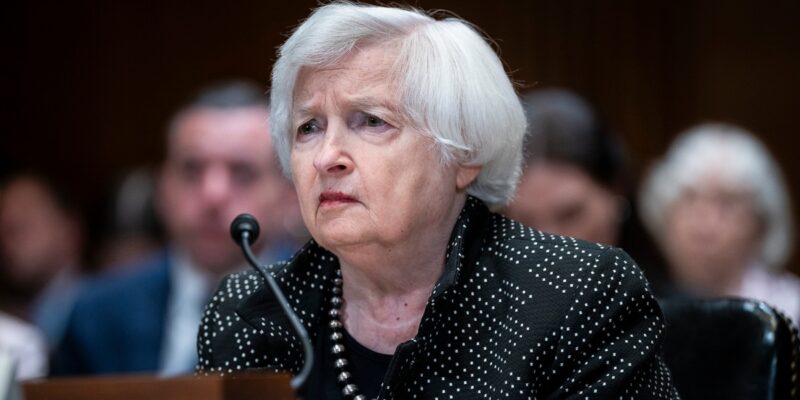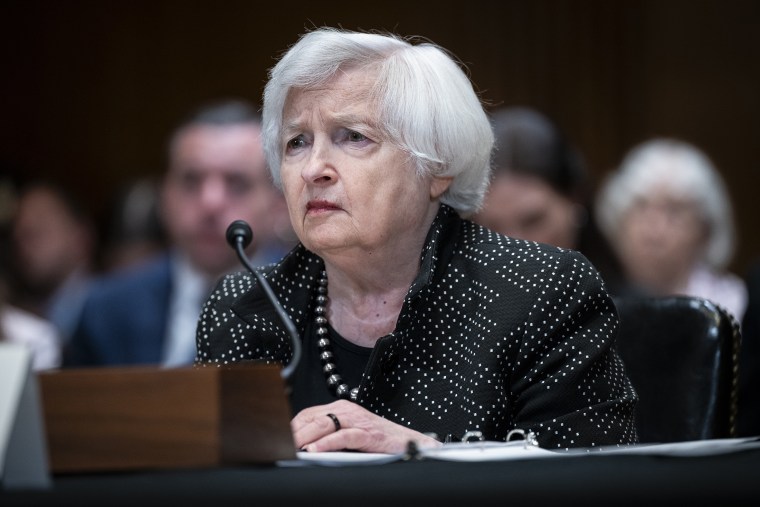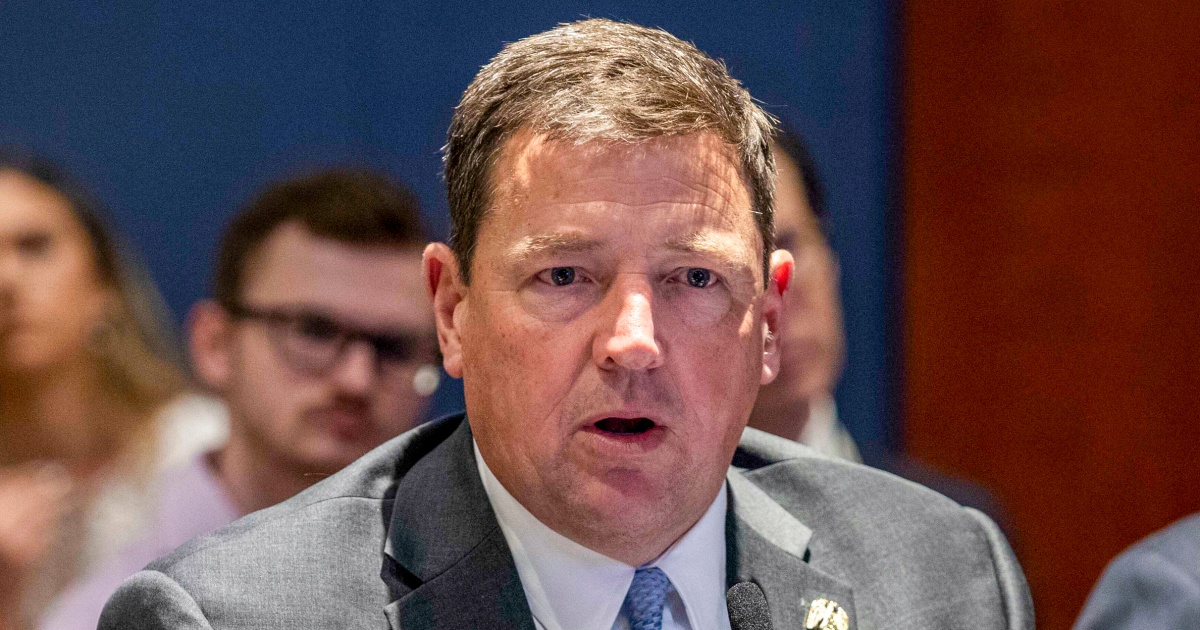
Treasury Secretary Janet Yellen warned congressional leaders Friday that the federal government will hit its debt limit as early as Jan. 14 unless Congress takes action or her department implements “extraordinary measures” to avoid default.
Yellen’s letter indicates that the looming debt ceiling fight involving Congress and the new administration is likely to take place in the early months of next year after President-elect Donald Trump failed to get a provision raising or eliminating the debt ceiling tacked on to an end-of-year spending bill.
“Treasury currently expects to reach the new limit between January 14 and January 23, at which time it will be necessary for Treasury to start taking extraordinary measures,” Yellen wrote in her letter, addressed to House Speaker Mike Johnson, R-La.

Secretary of the Treasury Janet Yellen testifies during a Senate Appropriations subcommittee hearing at the U.S. Capitol, in Washington, D.C., on Tuesday, June 4, 2024. Graeme Sloan / Sipa USA / Reuters
“I respectfully urge Congress to act to protect the full faith and credit of the United States,” Yellen added.
The dates Yellen cited could shift down the line, pushing the deadline further into 2025. The federal government can often operate for months under the “extraordinary measures” or accounting maneuvers Yellen referenced in her letter.
The debt ceiling, or the total amount of money the government can borrow to meet its fiscal obligations, is suspended until Jan. 1, following passage of the Fiscal Responsibility Act of 2023 that was signed into law by President Joe Biden.
Once the U.S. hits the debt ceiling, the government cannot borrow any more money and technically defaults, leaving it unable to pay bills unless the president and Congress negotiate a way to lift a limit on the ability to borrow.
As the government faced an ultimately averted shutdown last week, one of the issues Congress debated was increasing or even eliminating the debt ceiling.
The federal debt stands at roughly $36 trillion.
Democrats have long argued for raising or eliminating the limit — a move traditionally opposed by Republicans, who have cited the growing debt in negotiations with Democrats as they argue that federal spending is too high.
However, Trump seemed to take up the Democratic argument for the first time this month, telling NBC News that he thought the debt ceiling should be abolished.
“The Democrats have said they want to get rid of it. If they want to get rid of it, I would lead the charge,” Trump said.
He unsuccessfully demanded that Congress include a provision to extend or abolish the debt ceiling in its end-of-year funding bill, threatening electoral primary challenges against Republicans who voted to fund the government while excluding a debt limit.
Ultimately, 170 Republicans defied him and added the debt ceiling fight to the incoming administration’s growing to-do list.















